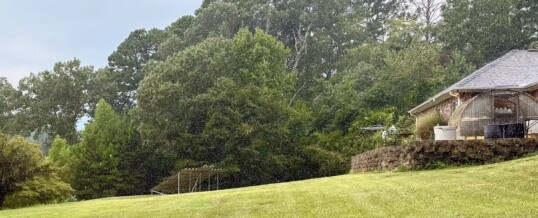
Red Rover. Sandlot baseball. Hide-and-seek. Cowboys and Indians.
The latter today is likely lacking political correctness, but it shares with the others a commonality. All were games of yesterday’s youth.
And they were outside games of that generation.
In reading a recent biography of Teddy Roosevelt, the description of his battle with asthma reminded me of what kids did for most of the early history of our country. We went outside and played.
Teddy (I hope he wouldn’t mind me calling him that) endured many alleged treatments for his breathing difficulties. Cigar smoking and strong, black coffee were two of them. But one other treatment gave the future president his love and passion for the beautiful parts of our country that he made national parks.
The outdoors.
By all accounts I’ve encountered, Theodore Roosevelt became healthy in spite of his illnesses. His doctor prescribed going outside. And his father encouraged it.
Such was the case with all mothers I encountered when I was growing up in Ashdown, Arkansas. If I had friends over, unless the sky was dropping hail bigger than a Buick, we went outside to play.
The only rule was that we had to be back in the house by supper, or when the streetlights came on. Whichever came first.
It was no different if I visited a buddy’s house. Whether I was at Doug’s, Scotty’s, Steve’s, or Jeff’s, their moms also tossed us out into the world.
I had no idea how lucky I was at the time, but the red brick house in the neighborhood where we lived on Beech Street was Grand Central Station. The reason, hindsight, was that we had the biggest yard.
We could play baseball, cops and robbers, Cowboys and Indians, or Red Rover. All were inspired by movies or TV shows we watched, and all caused us to pick sides.
I never felt sorry for the robbers, so I didn’t want to be one when it came time to choose sides, but I always felt sorry for the Native Americans. My great grandmother was Cherokee, so I always picked being an Indian. And I insisted that the cowboys had to lose an equal number of times.
As we grew older, our outside interests changed.
What we selected to do was most often predicated on where we were. Jeff lived in Allene, a small, unincorporated community that looked as if someone removed a small area of forest and plopped a few houses inside. That’s basically what it was.
The most exciting thing to do was to ignore the rule of being back by supper or when the streetlights came on, and sneak out to smoke cigarettes and ring the old school bell.
Jeff and I liked to live life on the edge.
Doug’s parents had a farm with a pond. One summer we decided we wanted to camp by the pond and cook the fish we caught. When we caught no fish and it got cold, we opted to go inside, eat chips, and watch the Midnight Special.
Scotty and Steve were musicians like me. Once we got word that some older boys’ band was playing at the skating rink. We convinced our moms to drop us off there, but only after we’d agreed to get some yard work done.
Once again, “You boys go outside.”
But we enjoyed being outside. Later, in high school, some of us played football, others baseball, and some tennis. Scotty, Steve, and I all made the tennis team. During the season, it wasn’t unusual for us to go to the high school and play 10 sets of tennis.
A typical set of tennis is six games, but can be up to 13. You do the math.
Outside used to be where kids went. And it felt natural.
When my parents moved us from Beech Street to Locust Street, there were a lot of woods behind our house. It felt a lot like Allene.
I’d take my .410 shotgun and hunt squirrels back there. Sometimes, other kids would join me, but most often I’d go alone.
The woods felt natural, which sounds silly to say, but it’s true. I always felt as if I belonged in the woods.
Maybe that was a programmed throwback to when man lived and survived primarily in the wilderness. I felt it innately. Who knows, but I think parents also felt that when they were kids. Which might’ve been why we were sent outside.
Or maybe it was to get us out from under our mothers’ feet. Either way, it was good for both of us. Of that, I’m sure.
And it’s that kind of child’s play that I think Teddy would still embrace.
© 2025 John Moore
John’s, Puns for Groan People (a book of dad jokes); and two volumes about growing up in the South called, “Write of Passage,” are available at TheCountryWriter.com. John would like to hear from you at John@TheCountryWriter.com.
NOV
2025
